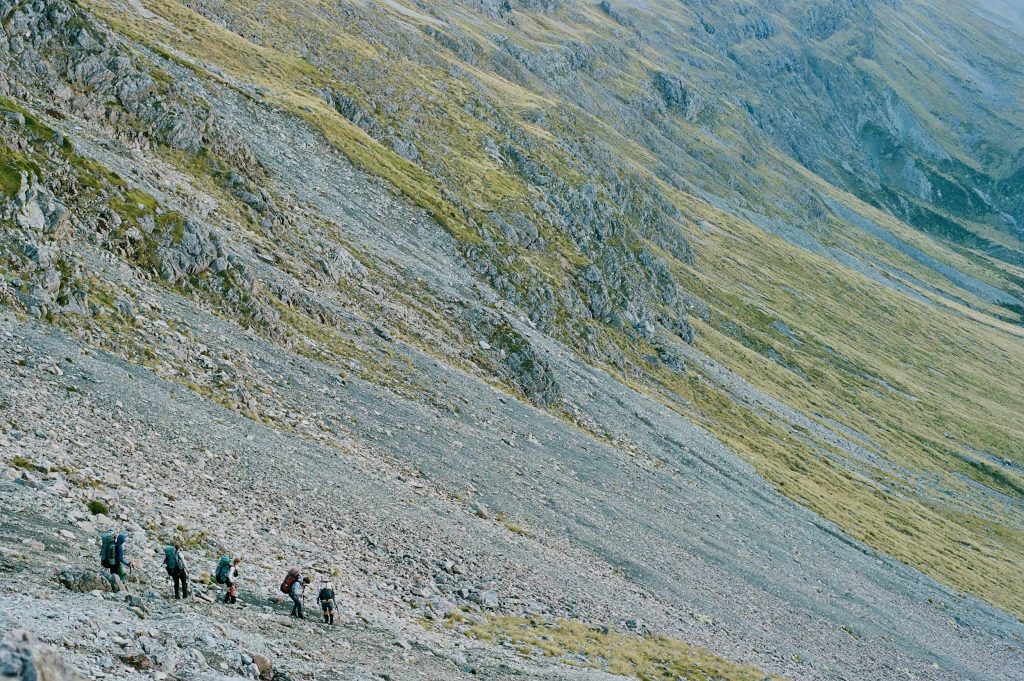By Victoria
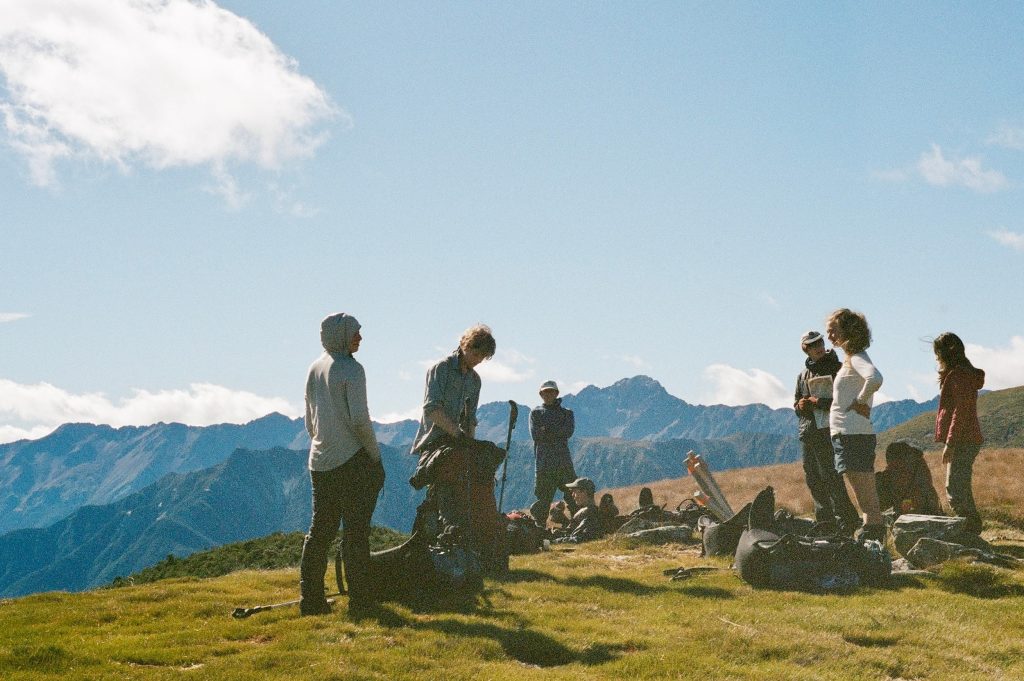
If there’s one thing I’ve learned from my time in New Zealand, it’s that in times of emergency the best course of action is to smoke a cigarette. Of course, this 50s first-aid slogan only serves to suggest taking time to think and plan your response in a crisis situation, but I can attest that a month of backcountry camping called for quite a few figurative Marlboro’s to be lit up.
Watching my friend’s 40 pound pack tomahawk down the gully we had just climbed. Smashing a GPS. Having to hike back 5 hours and missing a whole day of travel because of a misplaced PLB that was never found. Waking up to camp covered in snow, both tarps collapsed. Even having vital pieces of gear stolen by birds attracted to shiny objects. I never expected backpacking to require so much patience and thought but, then again, I didn’t know what to expect from my NOLS course at all.
Assumptions and Anxieties
When I first introduced the idea of hiking days away from civilization, with no communication, accompanied by complete strangers for an entire month, my family thought I was signing up for a cult. Only after providing significant details did they finally start to share my vision of a Jack London-esque adventure. Essentially, I’d join an expedition focused on the basics of backpacking and outdoor leadership. Despite the fact that I’d never backpacked before, the thought of being out in the mountains with nothing but a 20 kilo pack and an unhealthy amount of confidence in my abilities made me more excited than anything.
And so in late February, I found myself in rural New Zealand, a fat smile plastered across my face, with a few days left before my expedition began.
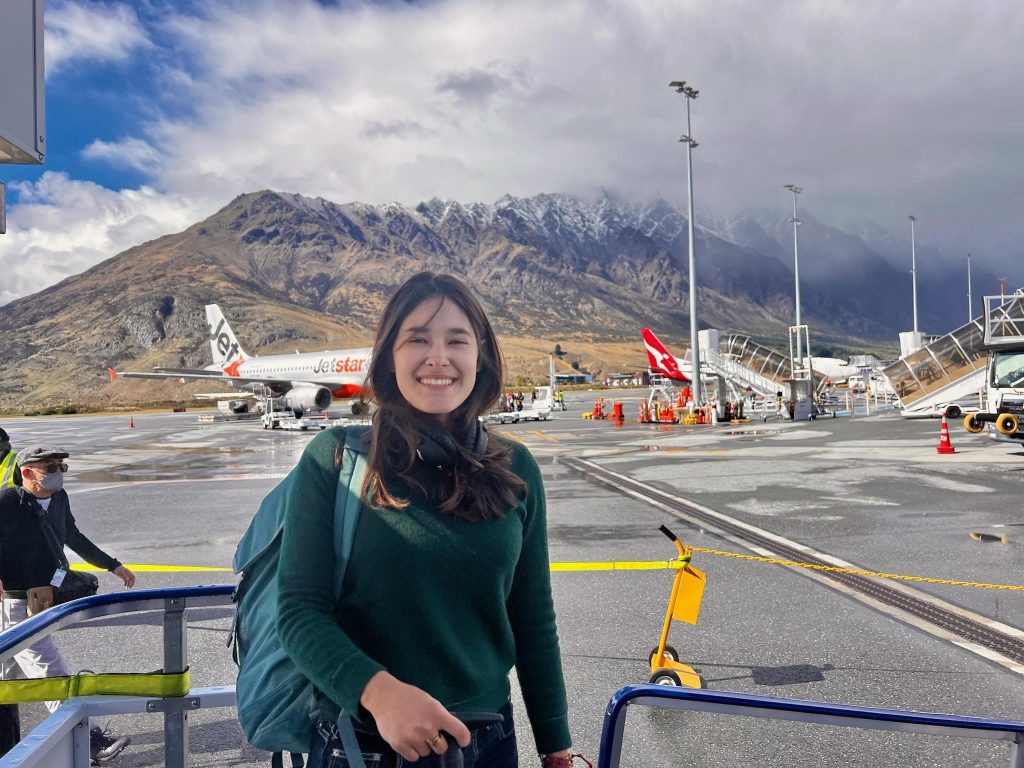
I met Nico, one of my nine course mates, in the kitchen of our hammock-strewn hostel over an argument about fried sausage. Once we figured out we would be spending the next month together, we instantly got to discussing all of our expectations and anxieties. Chief among them being what the other people on our course would be like. Looking back, I should have known that there’s nothing that brings people together quite like struggle and an intense amount of time spent together; but all I could think about at the time was whether we would even tolerate each other.
Meals Pave the Way
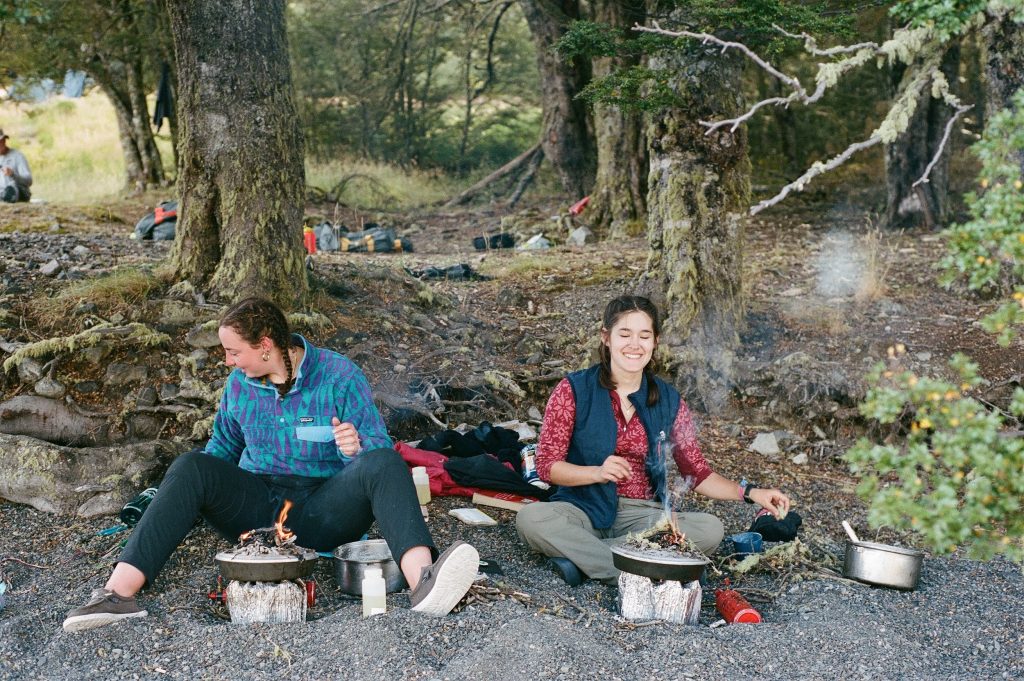
At the beginning, our camaraderie was most evident when it came to food. Nothing could possibly be closer to ambrosia than a steaming hot, cheesy meal held by achingly cold fingers attached to growling stomachs. We all had this in common from day one. So we set forward an unofficial culinary code of conduct: when you cooked, you had to chef it up as best as possible. The NOLS cookbook became a holy text quoted on the trail and routinely praised at dinner. We all tried our hands at attempts at oat scones and pancakes for breakfast or calzones and stir-fry for dinner. But, if you were as talented as Camille, our resident baker, you delivered sun-baked focaccia sandwiches and cinnamon rolls.
This is what made food sacred on the trail. The time and energy that an individual puts into making something solely for the pleasure of others. I’ll never forget the dinner Theo made on the coldest night of the trip. While sleet, snow, and hail rained down and soaked us even from within the tent, he stayed outside in sopping wet clothes for more than an hour to make the butteriest, cheesiest pasta I’ve ever had so the rest of us could stay warm and continue to sleep. Though food was the foundation of our relationships, it was only the first step.
Proximity
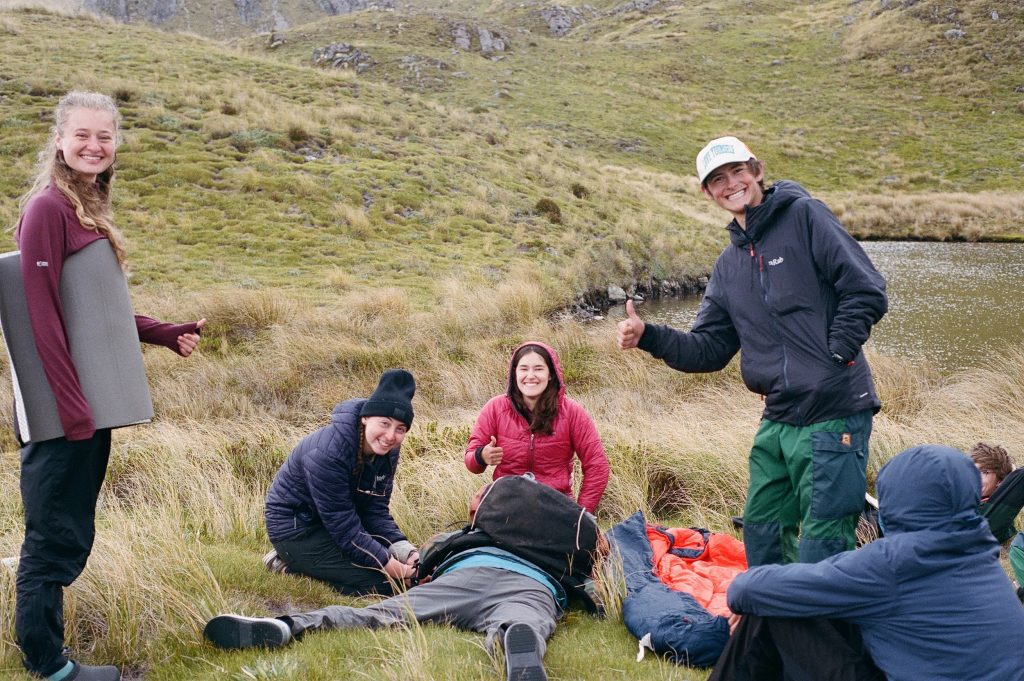
There has never been a time in my life where I have been so vulnerable in the presence of others. In the mountains, free time and any semblance of privacy cease to exist. Days are slotted into 6-8 hour hiking blocks spent laughing, suffering, and discussing any and every subject with the same 9 people. Afternoons are for first-aid lessons, setting up camp together, and route planning in pairs. Nights get cold fast meaning we quickly crowded into 4 person tents and settled in our sleeping bags, waking up intermittently to someone’s feet and another person’s arms thrown over you as we all flip flopped and rolled to our sides throughout the night.
However, this vulnerability extended far beyond the physical. Being cut off from friends and family for a whole month in such a foreign environment meant that I was forced to rely on those around me. When I knocked over a pot of boiling water after having spent 40 minutes watching over it in the freezing snow at dawn, it was my teammates who made me laugh through my tears of frustration and offered to share what water they had left over. Even just confiding my frustrations and doubts with Gracie made me feel like they weren’t so big anymore.
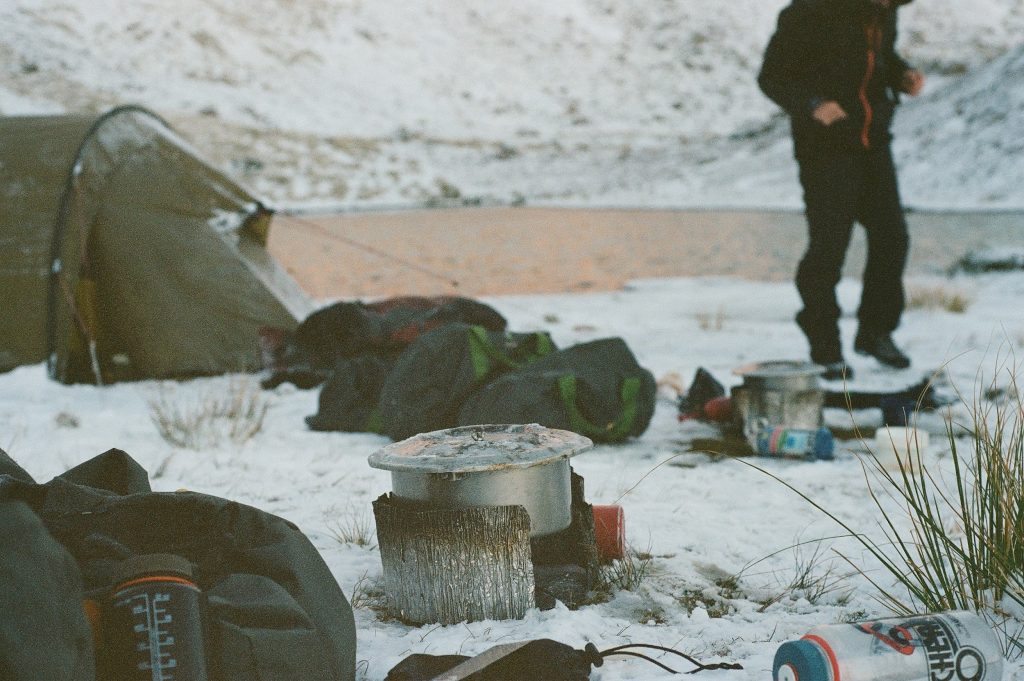
The Paske Trial
During the real “cigarette” moments, it was only by way of the morale and support of the group that we were able to make it through those situations. A particularly challenging experience was Day 9 going up Paske Saddle. Two of my course mates had dropped out of the expedition the previous days which had shuffled our schedule and pushed two days worth of distance into one. With a particularly intense weather system rolling in that night at 1AM, we had to clear the Travers Range now or risk being stuck in the Clarence Valley for the next week. Scrubby terrain and the novelty of off-trail navigation meant that the first 8km were slow, full of nearly rolled ankles and a constant eye on the map.
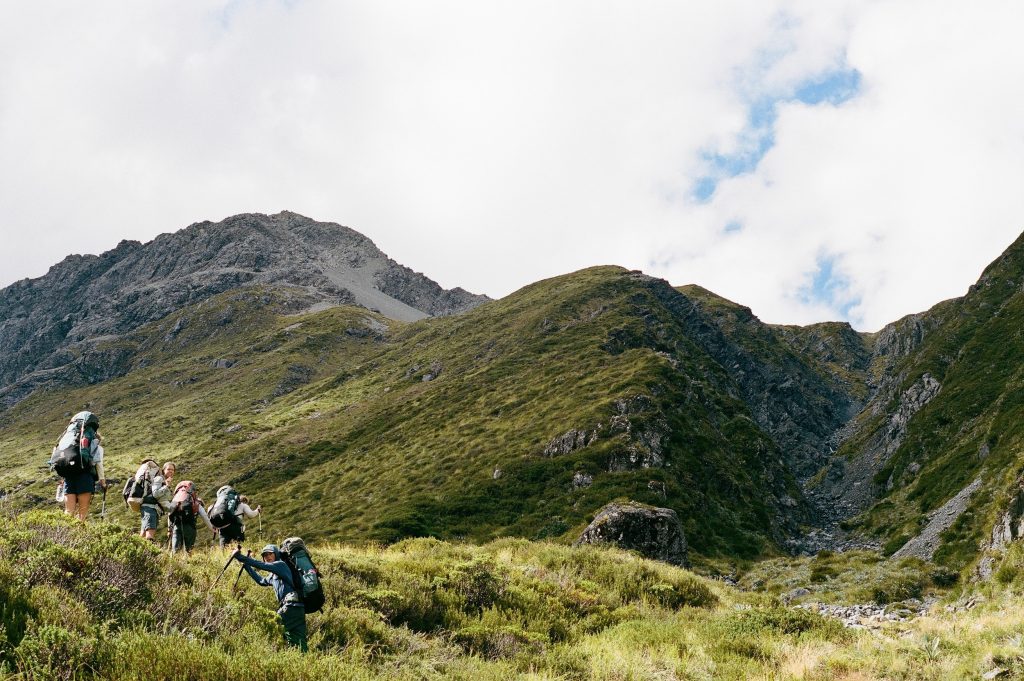
A deep gully slashed into the side of the mountain made it clear we had made it to the bottom of the pass at around 4pm. We all gaped up at the mountain face in front of us. Though the path up was only 1.2km long, we faced 500m of elevation making it an extremely steep gradient. That coupled with the fact that the only purchase available were small, waxy alpine plants meant that we would be scrambling on our hands and knees most of the way up. The route we chose was the most manageable but was bordered on either side with gullies that formed steep drop-offs of at least 40 meters.
As I dug my nails into the dirt and stuck my boots into the bases of shrubs, I kept my eyes on the ground. Every step swung the pack on my back and the 20 kilos of gear in it. Given the elevation, a miscalculation of balance or a missed foothold meant, at the very least, sliding down part of the slick hill and, at the very worst, falling off the side of it. I was terrified but simultaneously could not stop grinning from ear to ear through the exhilaration. This was exactly what I had come to New Zealand to do. As we looked back and leaned against the mountain during a break, the depth of the valley and the beauty of the range in the afternoon light was utterly consuming.
However, there was a sharp difference in the emotions of the group. While a few of us were ecstatic, there was also a sizable portion of the group that genuinely believed they were going to die. While we attempted to reassure them, there was not much we could say to promise them their safety. Halfway up the mountain already, it was the small, constant reminders of Will saying “you’re okay”, the scouting of Nico and Cliff, and the pack-passing coordinated by Lily that made it even possible to still summit the pass.

We reached the top at 7pm with the sunlight fading, meaning we would have to descend in the dark. Despite our mental and physical fatigue by this point, we could not risk being stuck on the mountain during the storm which was projected to bring 70km/h gusts and heavy rain even on the valley floor. The journey down to camp was nothing short of brutal. With no summit to look forward to and muscles that could barely hold me upright anymore, I fell to my knees at least 20-30 times in the next few hours, forcing myself to get up each time.
As night fell, the geographic features of peaks, rivers, and valleys we had used to navigate disappeared completely and clouds started to come in. We hiked in silence. With the wind howling and rain pouring, we still hadn’t been able to find camp or make it out of the thick woods full of fallen logs we were bushwhacking through. Now at 10pm, most of us began to struggle heavily. We were hungry, tired, and hadn’t been able to stop for a break in the last three hours.
Our instructors scouted ahead alone and eventually were able to spot a clearing that would provide us with some sort of shelter from the gales an hour later. Happy as I was to finally get to camp, there was a sense of exhaustion for what was yet to come.
As some of us worked to pitch the tents in preparation for the next two days of storms, the others collected water and fashioned basic meals out of potato pearls, cheese, and soup packets. While our tents could hold up against some wind, for any gusts over 30 km/h we would have to sit up and brace the tent poles or risk them snapping completely, collapsing the tent. So starting at 3AM, we would spread our arms, bleary eyed, from inside the tent to brace both sides of the poles every few minutes when we could hear the gusts rushing down the valley. Every squall of wind would cause the flaps of the tent to shutter violently with sharp acrid sounds that would echo inside of me.
Endings
After experiences like these, it still shocks me that the only people who will ever share the same emotions or have trekked through the exact same conditions are the people who surrounded me then. Friends who on our 9th day of meeting essentially trusted each other with our lives. Teammates who cooked for others, carried extra weight for others, and, overall, cared for others in any way possible.
The beauty of constant routine and work in good company is undeniable. In the mountains, there exists an irrational satisfaction in feeling that every bit of pleasure is deserved because of all the discomfort that accompanies it. While in theory this balances out to a net zero of enjoyment, in that month I was supremely and utterly happy. It was the cigarette moments in New Zealand that I respect the most.
